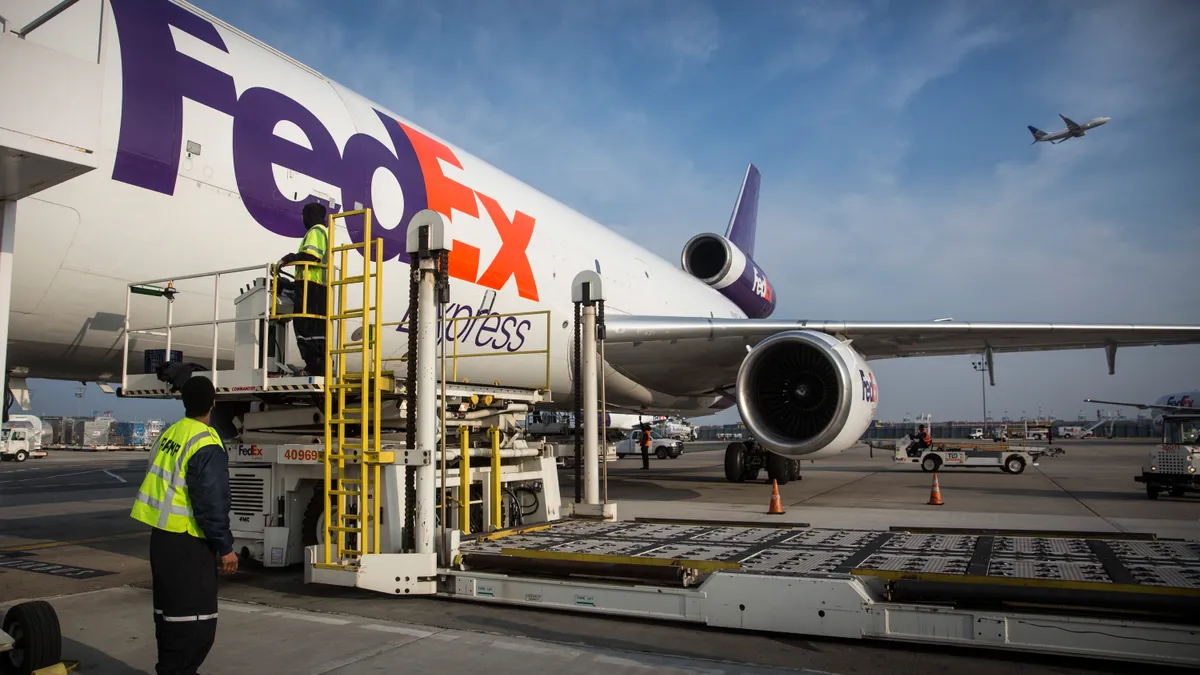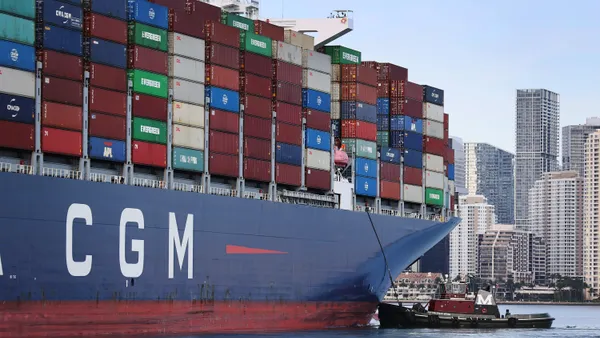Dive Brief:
- Air cargo shippers have encountered slower processing speeds in Atlanta this month as a result of the COVID-19 omicron variant sidelining employees, Everstream Analytics said in a weekly update.
- "We're seeing that the processing times are increasing by the day, and we think the trend is likely to continue for the next few weeks," Julie Gerdeman, CEO of the supply chain risk analytics company, said Tuesday of cargo operations at Hartsfield–Jackson Atlanta International Airport. Hazardous materials shippers are particularly affected, with Everstream customers in the space reporting delays of up to five to seven days.
- While Atlanta grapples with delays, congestion at other major U.S. airports has eased in recent weeks. "LAX/ORD/JFK terminal ground-handlers are busy, but are not facing the impairing backlogs from the past months, which has a positive effect on the export side," Flexport said in a Tuesday market update.
Dive Insight:
Airfreight remains in high demand, but fewer workers available to process and move cargo is clogging throughput for a transport mode meant for speed.
Swissport, which manages an air cargo warehouse at the Atlanta airport and reported record 2021 cargo demand, said in a statement that the variant has added pressure to existing capacity constraints. Atlanta was among the 15 busiest cargo airports in the United States in 2020, according to Airports Council International.
"For most of 2021, and especially in Q4, the top tier cargo airports have been operating above capacity," the company said. "These high volumes combined with existing staffing challenges, which have been accentuated by the arrival of the Omicron variant in early 2022, have had an impact on throughput for many companies in the air cargo supply chain, including Swissport."
The sting of labor constraints is being felt across the air cargo industry. FedEx temporarily suspended some of its airfreight services earlier this year due to staffing shortfalls sparked by the omicron variant, and Delta Cargo enacted a temporary embargo in Anchorage due to a lack of employees in January. The omicron variant also led to passenger flight cancellations during the holidays, tightening limited air cargo capacity even further.
Despite these challenges, air cargo volumes in January 2022 were up 0.1% from January 2021 and capacity increased 6%, according to a press release from Clive Data Services, which was recently acquired by Xeneta.
"We see this as a respectful start to 2022 by an air cargo market still dealing with uncertainties caused by Covid, as sick-leave and quarantine rules continued to affect many industries and countries," said Niall van de Wouw, Chief Airfreight Officer of Xeneta, in a statement. "We can see that the global air freight supply chain remains fragile, with airlines cancelling flights upfront because of the lack of crew."














